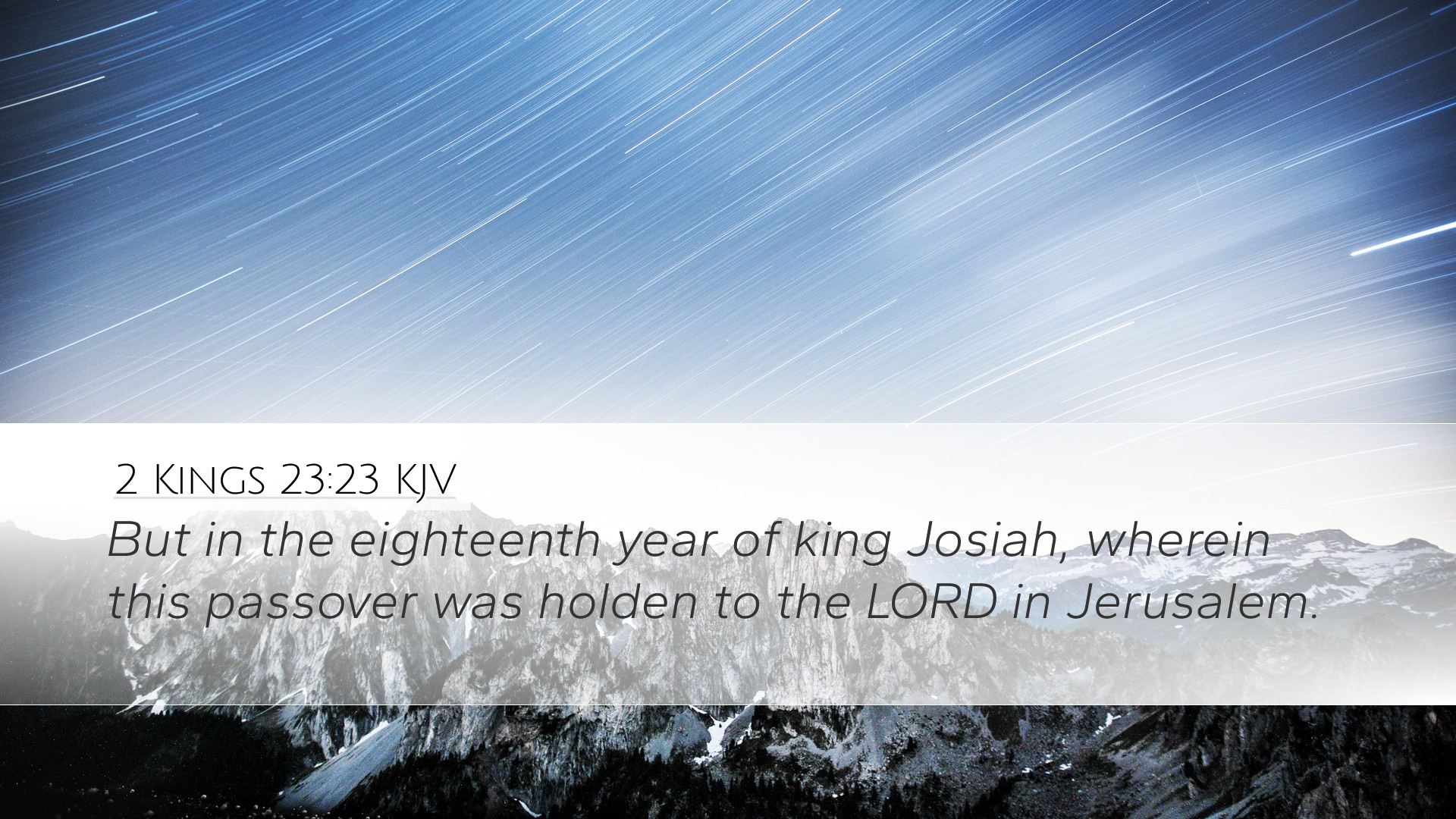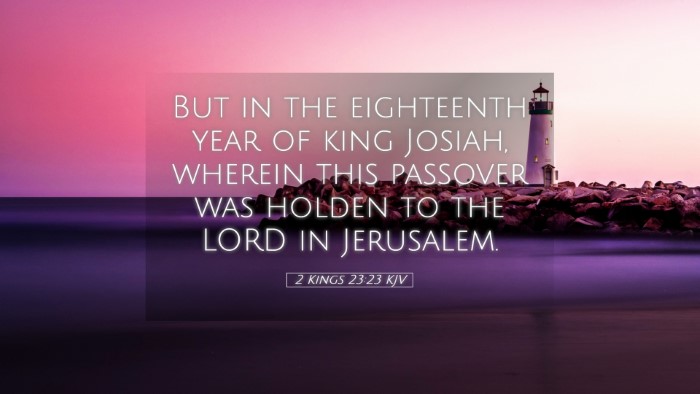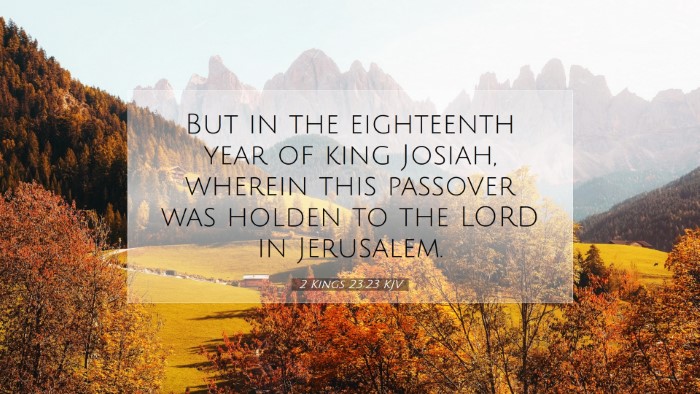Commentary on 2 Kings 23:23
2 Kings 23:23 states:
“But in the eighteenth year of King Josiah, the king sent to the temple of the LORD and instructed the priests to remove from the temple all the articles made for Baal and Asherah and all the starry hosts. He burned them outside Jerusalem in the Kidron Valley.”
Introduction
This verse marks a significant moment in the spiritual reform undertaken by King Josiah of Judah. The reforms were aimed at restoring true worship of Yahweh and eradicating idolatry that had infested Israelite society. This commentary draws from several public domain commentaries to explore the depth of this pivotal event and its implications for contemporary faith.
The Context of Reform
According to Matthew Henry, the reforms in 2 Kings 23 are a culmination of a long-standing neglect of God’s Law. The prior kings had allowed the worship of false gods, leading the nation into spiritual decay. Josiah's actions are set in the broader narrative of Israel’s unfaithfulness.
Spiritual Restoration
Albert Barnes emphasizes that Josiah’s fervor for restoring true worship is a model for leaders in both ecclesiastical and civic realms. His instructions to cleanse the temple demonstrate a proactive stance against the influences of idolatry, advocating for spiritual integrity.
The Significance of the 18th Year
Adam Clarke notes the importance of the timing—the 18th year of Josiah's reign—which symbolizes a ripe moment for reformations to take root. It coincides with increased awareness of God’s commands as the Book of the Law was rediscovered earlier in Josiah’s reign.
Idolatry and Its Consequences
The passage clearly highlights the destructive nature of idolatry. Matthew Henry elucidates that the worship of Baal and Asherah represents not just a physical act of turning away but a spiritual betrayal of the covenant between God and His people.
- Baal: A Canaanite god representing fertility and rain.
- Asherah: A goddess associated with war and fertility, often symbolized by a sacred tree or pole.
The Destruction of Idols
Josiah’s order to remove and burn the idols reflects both a cleansing and a repudiation of their influence. Barnes describes this destruction as not only a condemnation of the physical idols but also of the ideologies they represent. It represents a radical turn to exclusive devotion to Yahweh.
Clarke remarks that the act of burning the idols demonstrates an irreversible break from the past—a symbolic gesture against the sins that had led the nation astray for generations.
The Kidron Valley: A Symbolic Location
The Kidron Valley, where the idols were burned, takes on significant symbolism. This valley, which runs alongside Jerusalem, is also the site of many decisive spiritual confrontations throughout biblical history.
Henry notes that this geographical choice denoted a public and emphatic declaration against idolatry, signaling that there would be no hidden or private worship of false gods among the people of God.
Implications for Leadership
Josiah’s actions serve as a potent reminder about the responsibilities of leadership within spiritual contexts. Both Henry and Barnes assert that true leaders must engage in decisive actions to uphold righteousness and cleanse their communities of corrupt practices.
This commitment is not without challenges. Josiah faced significant opposition and the task of reforming a deeply entrenched system of worship, which speaks to the difficulties pastors and leaders face today in confronting contemporary issues within their congregations.
Lessons for Today’s Faith Community
Renewal of Commitment
For today’s church, this passage serves as a call to reflection and renewal. Just as Josiah sought reform, believers today must examine their lives and communities for any form of idolatry that distances them from true worship.
Public Demonstration of Faith
Furthermore, the public destruction of idols implies the necessity of demonstrating faith in tangible, observable ways. Churches are called to engage boldly in spiritual accountability, ensuring that their practices align with biblical teachings.
Conclusion
In summary, 2 Kings 23:23 captures a transformative moment in Israel’s history under King Josiah—a moment characterized by a vigorous return to covenant faithfulness and the rejection of idolatry. The implications of this verse encourage modern Christians to evaluate their own lives and communities, taking decisive steps towards spiritual integrity. The insights drawn from public domain commentaries enrich our understanding and application of this critical scriptural landmark.


